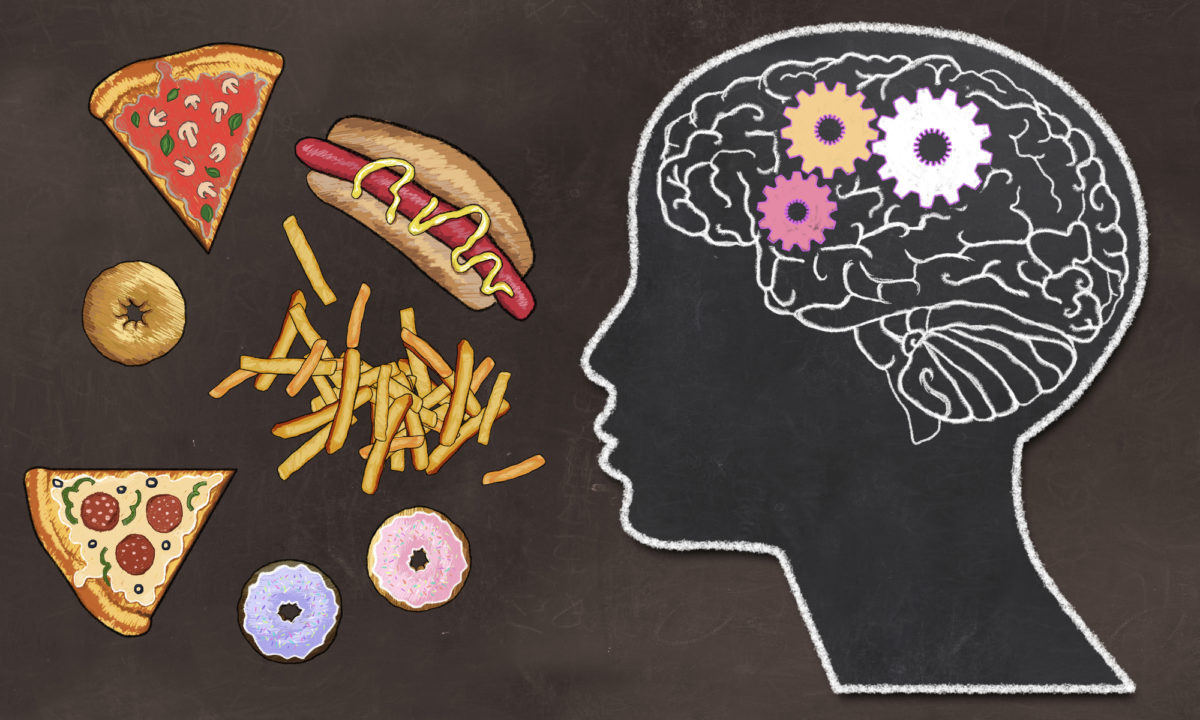I’d venture to guess that you have always kept at least a little bit of sugar in your pantry.
I’d also venture to guess that you’ve never eaten scoops of it right out of the bag.
But the moment you’ve added it to the creamed butter in the mixing bowl to start making cookies, you’ve been tempted to take a taste.
Add the flour and to the mixer and if you’ve got a highly sensitive food brain like I do, you’re lucky if any of the cookie dough makes it to the oven.
Along these same lines, we don’t really crave starch plain, like a plain baked potato. We crave a potato loaded with salted butter.
We don’t crave flour mixed with water. We crave flour, water, oil, sugar, and salt and we call it bread.
So what is it that we’re really craving?
To answer this, we have to look at our biochemistry from an evolutionary standpoint.
Propagating our species is, was, and always will be our #1 evolutionary priority just like it is for all living things.
It may not be your personal priority for modern-day psycho/emotional reasons but it’s still hard wired into you which is why you continue to have sex in your reproductive years even if you don’t “want” kids so stay with me.
Keeping our offspring alive to propagate our species requires food, shelter, and water.
We are hardwired to expend as little energy as possible to find that food/water/shelter for obvious survival reasons.
Of these 3, food is the hardest to find on a consistent basis (just watch a season of Alone if you doubt this).
Our brains are wired to register (and reward us through a feeling of relief/bliss) for finding food. Especially food that is calorically dense enough to keep us alive for a while so we have the energy to… reproduce and to find more food.
The more calorically dense, the bigger the reward, not just in our bellies but in our brain so that we’re likely to repeat the behavior that led to finding that food.
This means that Salmon is more rewarding than wild lettuce and we’re willing to work harder to catch a salmon than we would be to find some lettuce.
This hard wiring is a feel-good reward system driven by dopamine in our brain. Dopamine plays a huge role in all habits via a reward/motivation/behavior loop.
Our brain naturally registers (and rewards us with a feeling of pleasure) for finding fat because fat is calorically more dense than either carbohydrates or protein alone.
Our brain also naturally registers (and rewards us big time) for finding carbohydrates, especially sugar because there is nothing in nature that is inherently sweet and poisonous.
Sugar plus fat equals a huge dopamine score because that signifies safe caloric density.
Random behavior (stumbling on huckleberries for the first time) triggers dopamine to reward us, pleasure is registered, our brain wires a connection between blueberries and pleasure, that guarantees we’re likely to repeat the steps that led to finding the blueberries.
Next time we get hungry we remember the berries, craving is triggered, the behavior is repeated.
This whole system exists to guarantee that behavior that is helpful to survival gets repeated. The more the behavior gets repeated, the stronger the neurology driving the behavior (ie, the stronger the desire) and the more automated the behavior becomes.
This is when cravings feel out of control. They are. Out of our rational control anyway.
This is all happening in our more primitive/emotional brain, not our rational (I want to fit into my swimsuit this summer) brain.
Our modern food supply hijacks this inherent biochemical reward system.
Our biochemistry drives our behavior around processed food and food manufacturers exploit the crap out of this. They call it the bliss point.
The bliss point is a perfect blend of fat/salt/sugar that is irresistible to us because it triggers this dopamine reward that feels wonderful for a few moments.
That pleasure feeling lays down neural pathways that guarantee that we’ll never walk past that food again without triggering desire.
It’s basic biology. And understanding it allows you to quit being exploited by it.
Want to learn more?
Join our Wild Woman Facebook Group where I give you tools to stop being hijacked by processed food
See you in the group!

